As health departments in Saint Louis City and County release COVID-19 data about cases and deaths relating to race and ethnicity, it has become clear that the burden of cases is falling heavily on communities of color.
As of May 4, 38% of the deaths and 30% of positive cases in Missouri were Black people, though they form only 11.8% of the state’s population, according to the U.S. Census. This mirrors what’s happening across the nation. According to preliminary data released by the Centers for Disease Control and Prevention, 28.5% of COVID-19 patients are African American despite only making up around 13% of the U.S. population.
“All across the country, we are seeing how underserved communities, which are mainly communities of color, are being affected the most by this pandemic,” alumnus and state Rep. Rasheen Aldridge said. “But it’s not new. The systems in place disproportionately [do] not give resources to underserved communities that need them the most. Resources in this pandemic time [means] having access to quality and affordable health care and that hasn’t been in place in the Northside [North St. Louis] or in a lot of African American communities.”
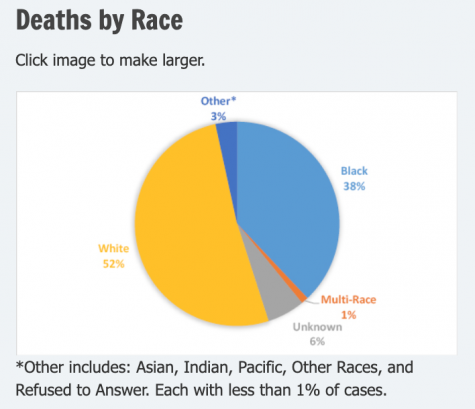
Data as of May 4, 2020. MO Department of Health and Senior Services.
Decades of historical injustices including lack of medical access, medical discrimination, environmental racism and housing segregation have contributed to the disproportionate impact of COVID-19 on communities of color.
“The racism that we’ve been having, segregation [and] division of keeping some folks up and others down in the city of St. Louis and across the country plays a huge part right now. These kinds of systems have been around for decades [and] continue to hold power within a certain group,” Aldridge said. “[The systems] continue to only make sure that their friends, the haves, are able to [succeed], and the have-nots continue to struggle on a day-to-day basis.”
Assistant principal Kate Piffel explains that COVID-19 is also exposing gaps in the educational system, especially as it relates to internet and food access.
“Covid has shown us what we already know: equity is extremely important for education,” Piffel said. “Many of our students have parents that work in healthcare or are other essential workers, so they do not have parents at home to support them. On the same note, if parents have lost their jobs due to the pandemic, students may be picking up jobs to help support their family. The bottom line: education is not always the first and most important thing on our students’ minds.”
Parkway distributed electronic devices to ensure access to a device and is also offering other technology support to support students during eLearning.
“Many of our students may not have access to technology in their home, whether it be a computer or access to the internet, so ensuring our students are still able to work on their school work during this eLearning time has been something we have all been working on,” Piffel said.
The district is also providing free meals to students in need at Fern Ridge High School, South High School and Park Meadow Apartments each Wednesday during the schools’ closure. The Parkway Food Pantry is also providing meals for families every few weeks. Meanwhile, Saint Louis Public Schools set up multiple sites around St. Louis City to provide once-a-week meal service to families.
“[Meal distribution] is huge for our families. Many students rely on their school each day to provide them quality meals,” Piffel said. “With schools in Missouri shut down, it was imperative to keep supporting them.”
Aldridge believes all community members, from elected officials to young people, have a role to play to address the inequities in society.
“Once all this is over, I hope we really look at the disparity gap, quit being so shocked and actually move into a place of action to make things better,” Aldridge said. “When these things take place, ask the question ‘why’ and use your privilege to challenge the system. If we don’t challenge it, it will continue to do what it’s meant to do: making sure that some people are surviving and some people [are] asking themselves every day if they’re going to be able to put food on the table. So open up your eyes, take your blinders off.”
Similarly, Piffel believes that it is critical to be empathetic and understand the COVID-19 outbreak from a different perspective.
“I just think it’s important that everyone work to see the world through someone else’s lens. We have no idea what one student or family may be going through and we all need to turn up the compassion now more than ever,” Piffel said. “One of our West core values is empathy and I can think of no other time in which we can all be displaying empathy more than now.”

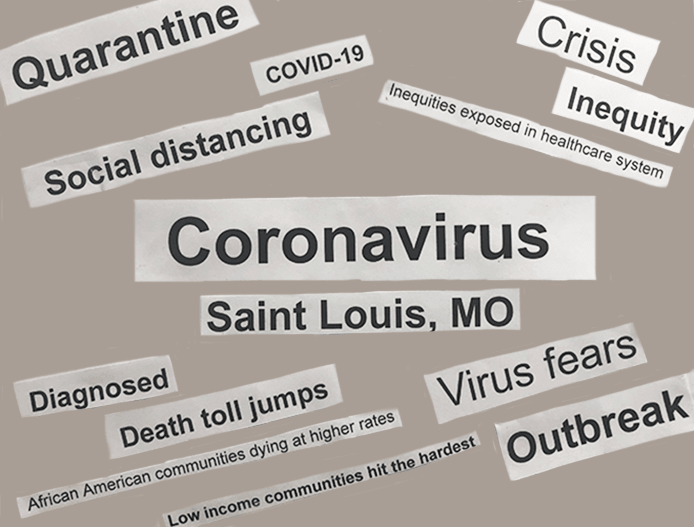



![Standing in Lambert Airport, French students smile for a photo before their flight. On March 10, the group of students began their 12-day trip to France, accompanied by French teacher Blair Hopkins and Spanish teacher Dominique Navarro. “The trip went smoothly. I think everybody enjoyed all three parts of it: Paris, Nice and the family home stay. The feedback I’ve gotten from all [of] the students has been positive, including several people already trying to plan a trip back to France,” Hopkins said.](https://pwestpathfinder.com/wp-content/uploads/2025/04/IMG_8146-1200x900.jpg)
![Latin students pose for a group photo in front of historical ruins in Italy. From March 13 to March 23, the Latin department traversed cities in Italy to immerse students in an educational experience of a lifetime. “I enjoyed being able to learn about the different cultures. [The trip] encouraged me to see other people's lifestyle and learn more about different histories,” senior Suraiya Saroar said.](https://pwestpathfinder.com/wp-content/uploads/2024/04/PXL_20240318_092633493.jpg)
![From Jan. 22 through Feb. 1, Parkway West High is displaying a wide array of art pieces made by students ranging from elementary to high school. All classes were represented on the displays in both the art wing and the main foyer of the school. “[Art] benefits me because in the middle of a busy day. I can just relax and have some fun doing art and it makes me happy. I think it's important that you show art in the art show so that people can get inspired by it and be inspired to create their own pieces; it’s really impactful,” sophomore Dhiya Prasanna said.](https://pwestpathfinder.com/wp-content/uploads/2024/02/image1-1200x800.jpg)
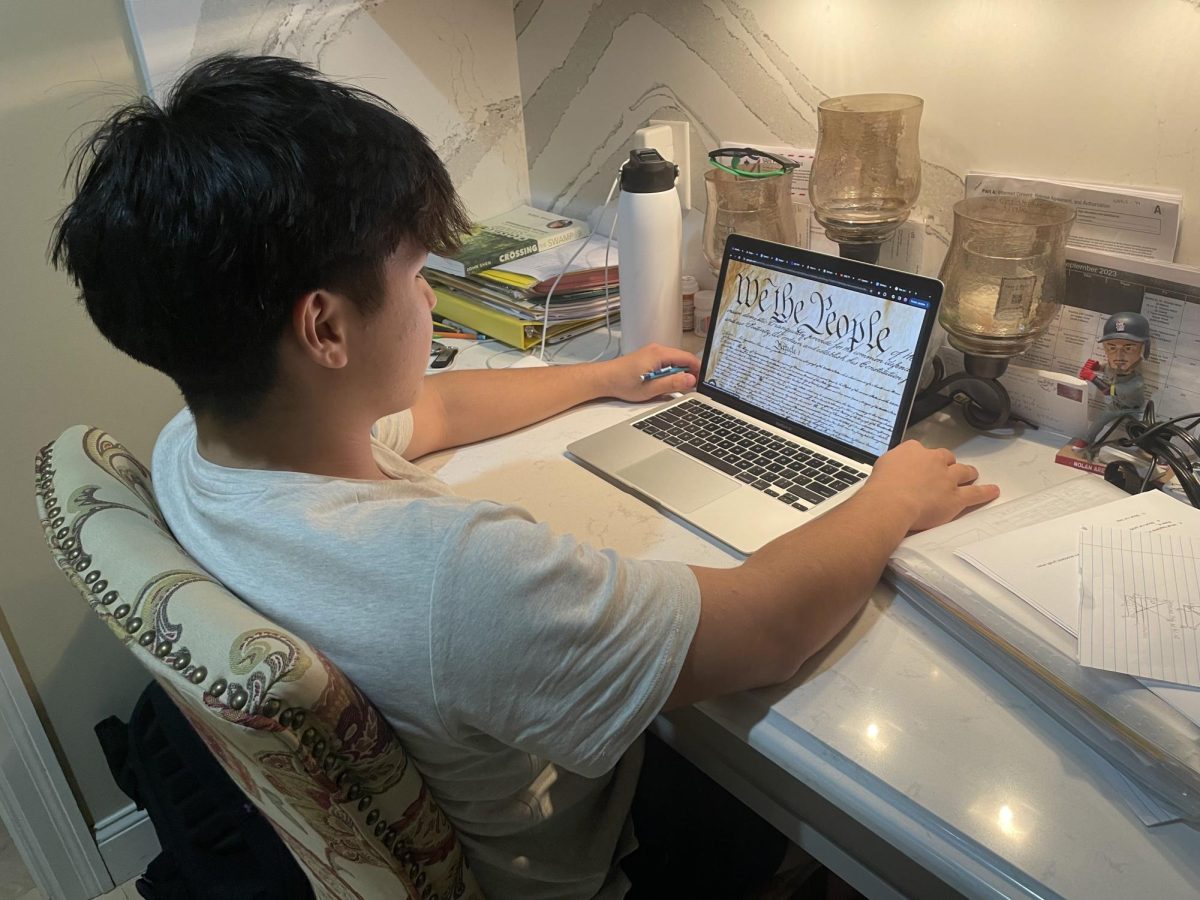
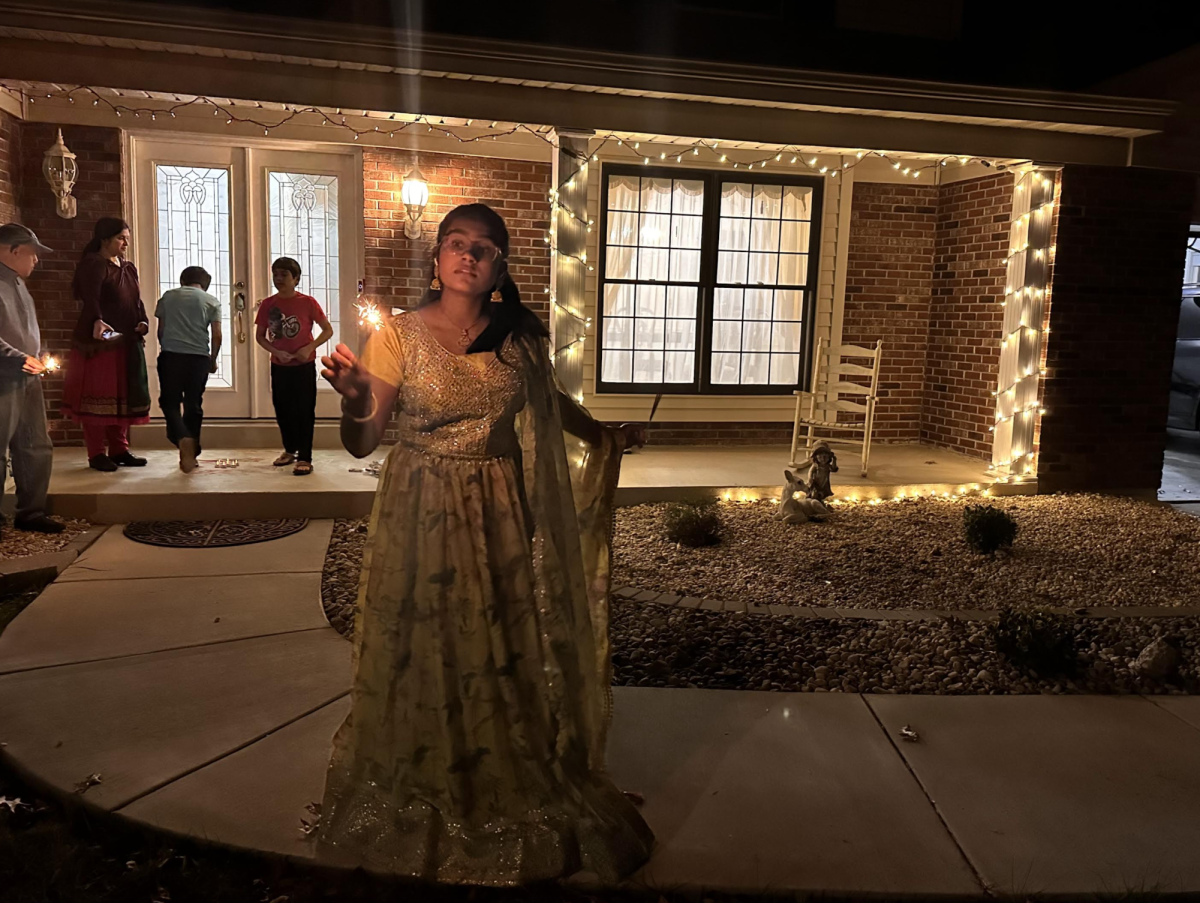
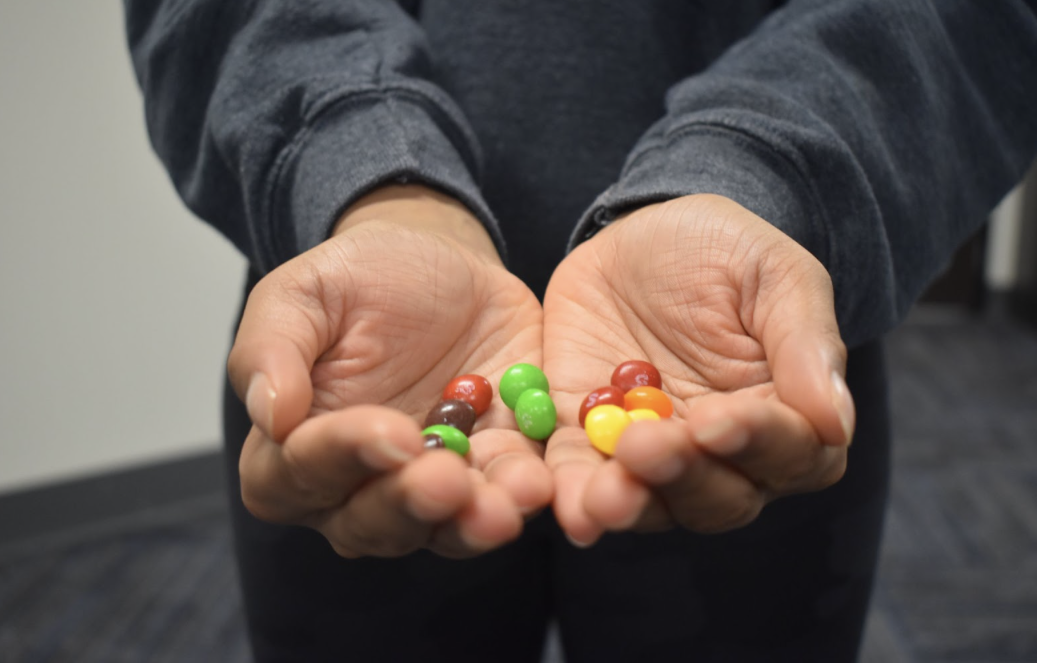
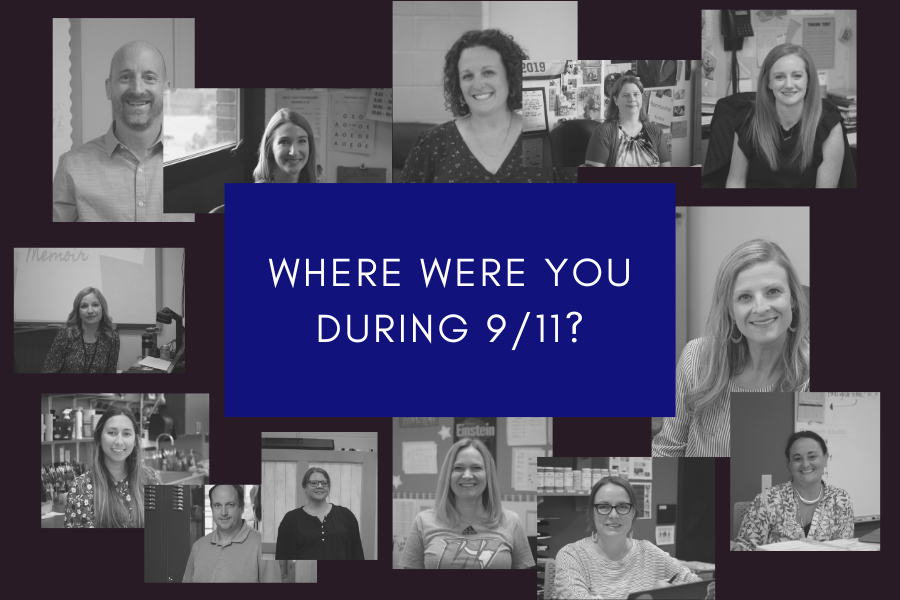
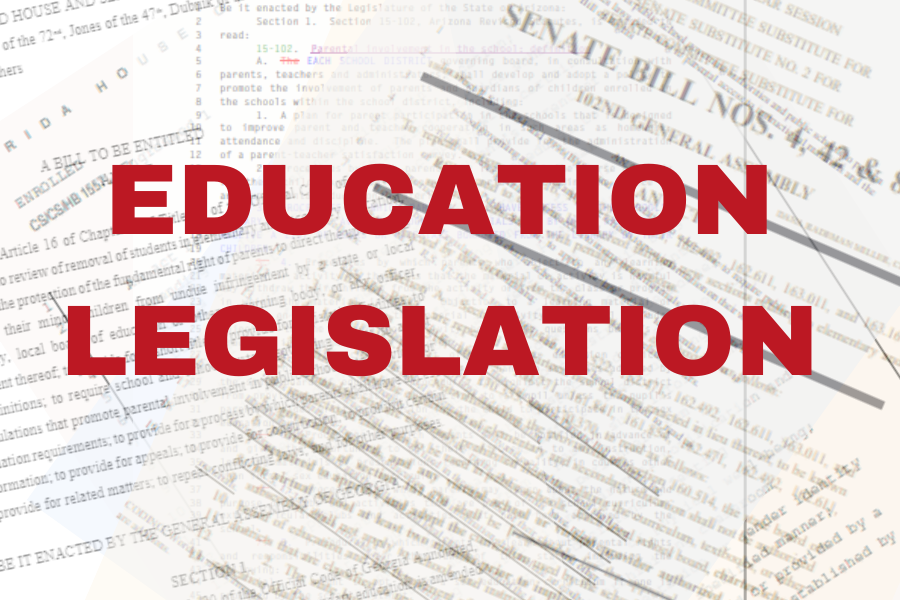
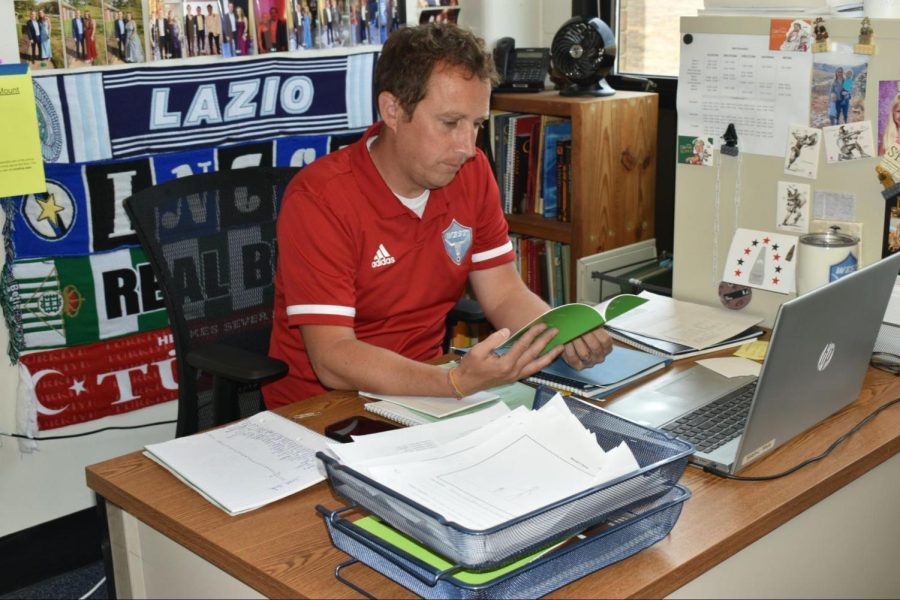


![Pitching the ball on Apr. 14, senior Henry Wild and his team play against Belleville East. Wild was named scholar athlete of the year by St. Louis Post-Dispatch after maintaining a high cumulative GPA and staying involved with athletics for all of high school. “It’s an amazing honor. I feel very blessed to have the opportunity to represent my school [and] what [it] stands for,” Wild said.](https://pwestpathfinder.com/wp-content/uploads/2025/05/unnamed-6-1200x714.jpg)
![The Glory of Missouri award recipients stand with their certificates after finding out which virtue they were chosen to represent. When discovering their virtues, some recipients were met with contented confirmation, while others, complete surprise. “I was not at all surprised to get Truth. I discussed that with some of the other people who were getting the awards as well, and that came up as something I might get. Being in journalism, [Fellowship of Christian Athletes and] Speech and Debate, there's a culture of really caring about truth as a principle that I've tried to contribute to as well. I was very glad; [Truth] was a great one to get,” senior Will Gonsior said.](https://pwestpathfinder.com/wp-content/uploads/2025/04/Group-Glory-of-Missouri.jpg)

![Freezing in their position, the Addams Family cast hits the “rigor mortis” pose after cast member and senior Jack Mullen, in character as Gomez Addams, calls out the stiff death move. For the past four months, the combined company of cast members, orchestra pit, crew and directors all worked to create the familial chemistry of the show. “I’m excited for [the audience] to see the numbers, the music, the scenes, but I also just love all the technical aspects of it. The whole spectacle, the costumes, makeup and the people that put in the work backstage in order to make the show successful on stage. I’m excited for people to see and appreciate that,” Mullen said.](https://pwestpathfinder.com/wp-content/uploads/2025/03/DSC0116-1200x800.jpg)
![This is the first year that the Parkway West Science Olympiad team competed at regionals. Team member and junior Anish Jindal competed in several events including Chem Labs, Experimental Design and Geological Mapping, earning top five placements in several events. “Compared with some of the other academic competitions at West [that can be] difficult to figure out how to get better, [Science Olympiad] is a lot more inclusive, having a broad group of people with different specialties,” Jindal said.](https://pwestpathfinder.com/wp-content/uploads/2025/03/DSC0391-1200x800.jpg)
![Raising his arm for a high five, freshman Abram Brazier plays with Early Childhood Center students during his first visit of the semester. Brazier joined his assigned class during their designated outdoor time. “[Child Development] gives me experience with how to talk [to] kids. We read them a book so knowing how to talk to them [was helpful]. Most of the [preschoolers] just came right up to us [and] played around,” Brazier said.](https://pwestpathfinder.com/wp-content/uploads/2025/01/gallery2-1200x800.jpg)
![Adding a tray of canned corn to the pile, junior Michael Collop assists in transporting donations for the Holiday Food Drive. The event, hosted schoolwide from Dec. 10-17, raised over 5,000 food items to deliver to the Parkway Food Pantry, helping several families in need. "[The drive] is a great thing for us to do because you're giving to those who are less fortunate, and it helps provide for people who can't provide for themselves. [The] competition is always fun, too. It was fun to be in [social studies teacher Jeff] Chazen’s class, because he always gets worked up over [the competition]. He made it exciting, and was always convincing us to turn in cans for the drive,” Collop said.](https://pwestpathfinder.com/wp-content/uploads/2024/12/feature-photo-unsung-2.png)
![Principal John McCabe announces that Jeffrey Chazen has won Teacher of the Year. Chazen was discussing freedom of speech with his AP Government class when the door opened and administrators rushed in. “[I was] extremely happy and humbled, but mostly shock[ed]. I've been here longer than any other teacher, so I know most of the people on the list of Teachers of the Year, and they are amazing teachers themselves,” Chazen said. “It's just nice to be on the list with them, including [social studies teacher Kristen] Collins, who is the only other social studies teacher who has won Teacher of the Year. It was nice to bring something back to the social studies department.”](https://pwestpathfinder.com/wp-content/uploads/2024/12/DSC_0021-1-2-1200x801.jpg)
![Shifting global trade, President Donald Trump’s tariffs are raising concerns about economic stability for the U.S. and other countries alike. “[The tariffs are] going to pose a distinct challenge to the U.S. economy and a challenge to the global economy on the whole because it's going to greatly upset who trades with who and where resources and products are going to come from,” social studies teacher Melvin Trotier said.](https://pwestpathfinder.com/wp-content/uploads/2025/05/MDB_3456-1200x800.jpg)
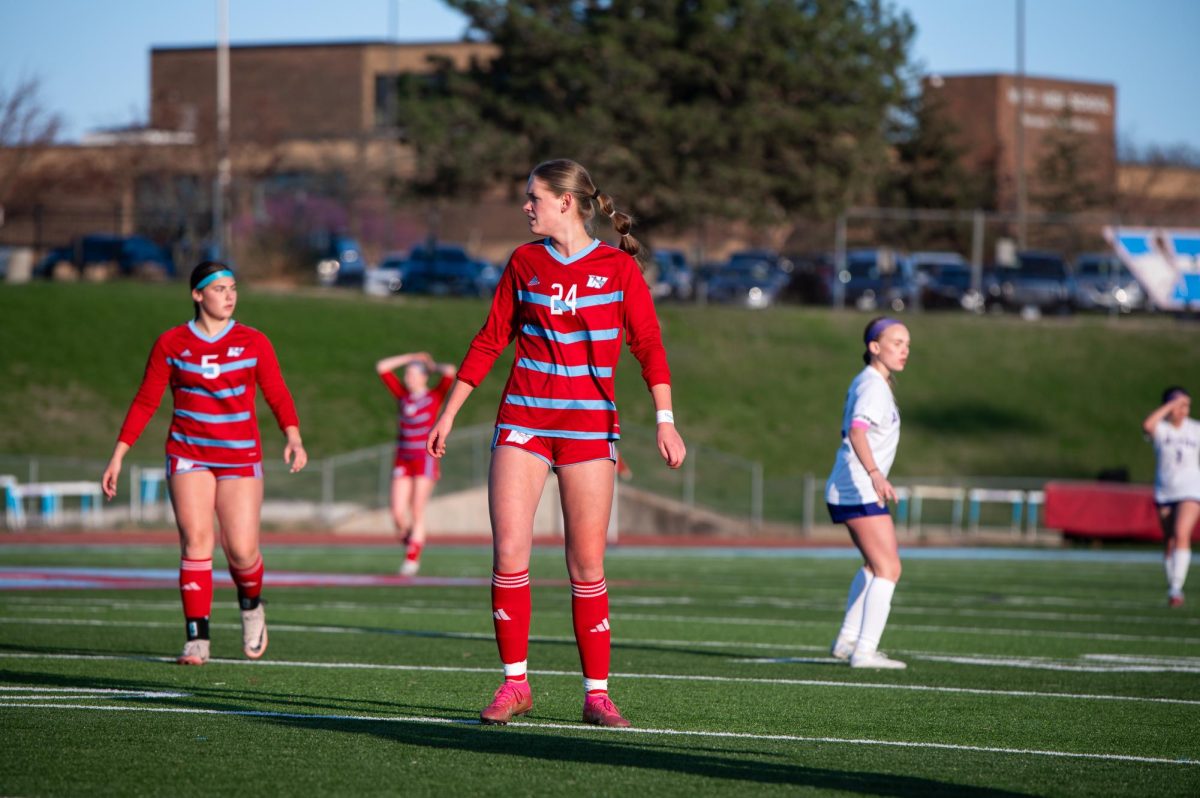
![“I started playing [basketball] because I saw that my brothers were playing, and I found it fun; I started playing at age eight and have continued to play ever since. [Something] I enjoy [is] the back-and-forth competitiveness of basketball that I don't get when I play softball, as well as our team bonding activities because I think it helps with the chemistry throughout our group and in the real world. I also enjoy winning and all of the competitive aspects. [Basketball] has brought great memories and people into my life, and I enjoy spending most of my time with them and cherish the memories my team has created. Getting to go out and play with my very best friends every day is just the best gift a girl can get. A big thing that motivates me is how much time and effort my coaches put in. I just want to work hard because they work hard, while also making my parents proud at the same time. Sometimes, it’s not an easy task being able to balance school and athletics, but with the right mindset and focusing on the goals that I have set for myself, it’s achievable. In high-pressure situations, I just go back to playing my own game [and the basics within the game] rather than focusing on everything around me because I trust my training and my practice. [My advice for upcoming players] is to keep going and continue to practice. Nobody is perfect, there is always going to be something to improve or get better at. There is always going to be someone out there who is doing better than you, and if you want to be the best, you have to keep going and push yourself to be better, but most importantly just have fun in what you’re doing.” - Siena Snyder, 12](https://pwestpathfinder.com/wp-content/uploads/2025/03/DSC0571-Enhanced-NR-Ella-McNeal-1-1-1200x798.jpg)
![“[I think being a teacher comes] from a place of experience, where we all enjoyed high school. It had a meaningful impact on us, which was [the case] for me. I had a lot of good mentors in high school, and seeing the opportunity, the impact that they could make, I think [that was] what inspired me. [It] definitely goes back to one teacher in particular [that] I had in eighth grade, he was a huge role model for me, and somebody who I was so appreciative of what he did for me. I figured if I could do even a fraction of what he did I feel like I would be very fulfilled [in] myself, and so there's just that aspect of wanting to do something meaningful every day.” - Kaleb Schumer, English](https://pwestpathfinder.com/wp-content/uploads/2024/12/IMG_9428-1200x800.jpeg)

![Under the hoop, senior Chloe Kallaos and the cheer team line up before they begin their cheer routine on Feb. 10. The seniors celebrated by wearing t-shirts that each underclassmen made for them. “My shirt was made by one of my teammates, [sophomore] Elizabeth Knott. It’s a tradition for the underclassmen to make t-shirts for the seniors to wear on their senior night. In my sophomore year, I made one for Madi Nuernberger and Sami Milholland,” Kallaos said. “My favorite part was seeing my fellow seniors fly when some of them don't normally get the chance to fly. It was fun to see my friends try new skills,” Kallaos said.](https://pwestpathfinder.com/wp-content/uploads/2024/02/Image_20240217_231546_661-1.jpeg)
![Holding his two smiling daughters in his arms, Principal John McCabe celebrates earning his doctorate degree. He attended Maryville University for two years and reached his goal of achieving a Doctor of Education: Educational Leadership degree after months upon months of hard work and long nights. “I'm not going to lie, I'm glad I have another night of my life back when I'm not at school till very late,” McCabe said. “I can spend more time with my family and with my friends [who] are here at [West]. I'm really happy about that.”](https://pwestpathfinder.com/wp-content/uploads/2024/01/mccabefeature.png)
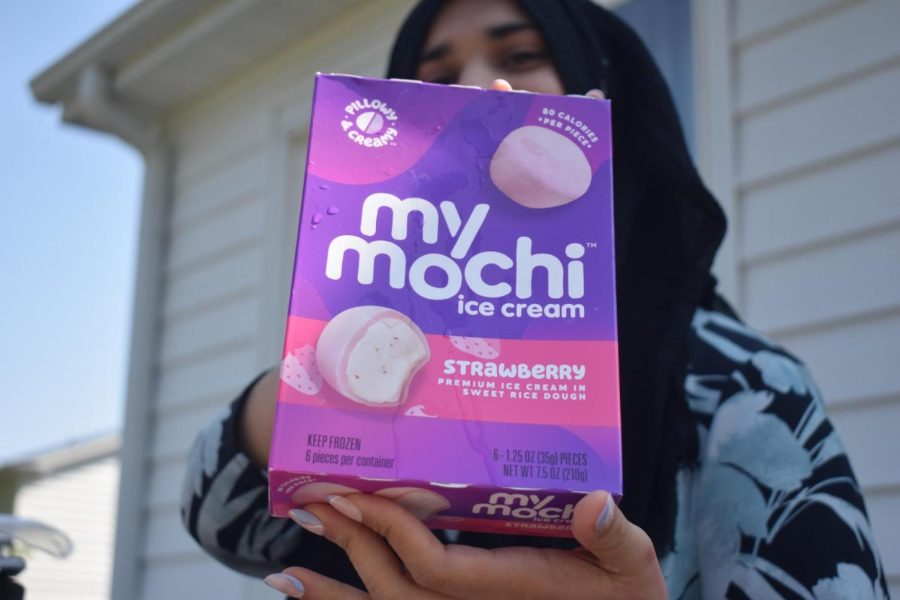
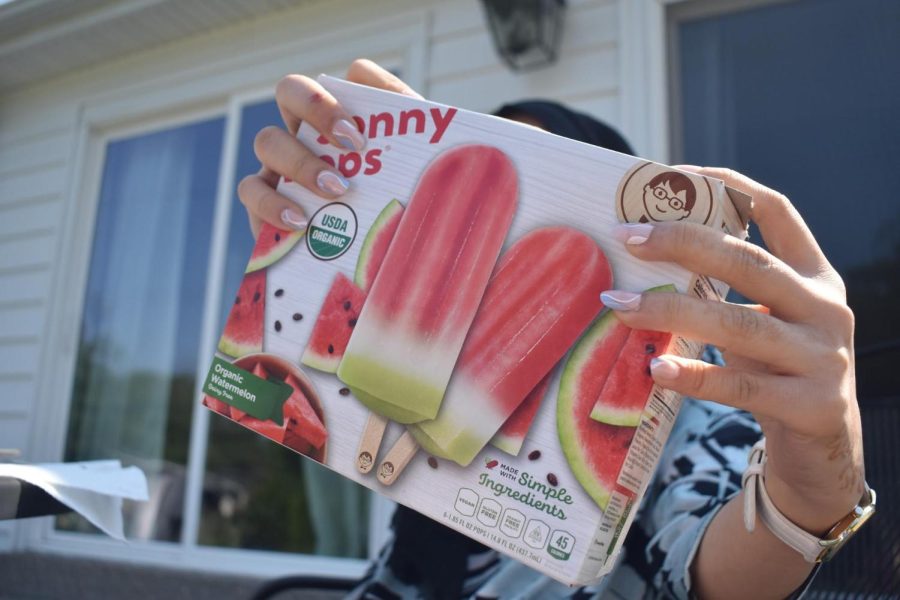
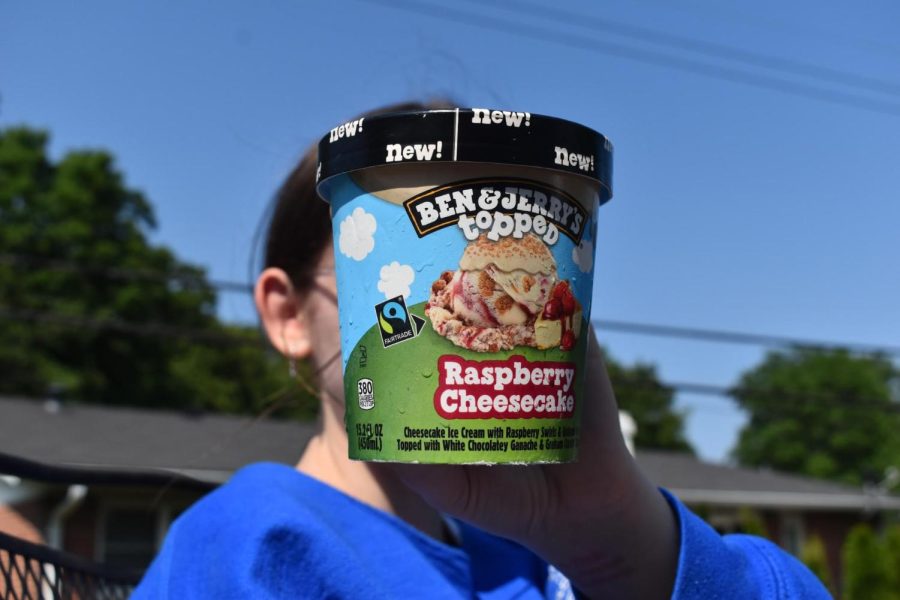
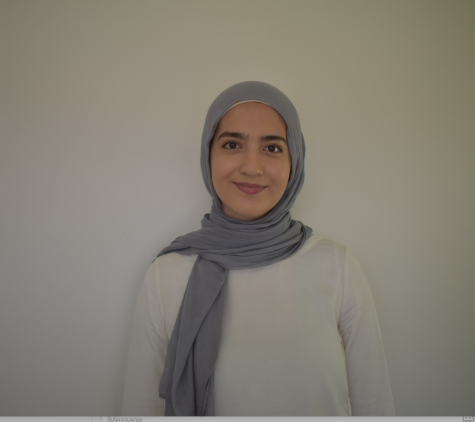
Dr. Charlotte V. Ijei, L.P.C. • May 7, 2020 at 12:42 pm
Ulaa, I am so appreciative of you writing this article. Many people don’t know the truth about how the COVID-19 pandemic is affecting people of color disproportionately and the reasons why. You have done an excellent job of unraveling the truth concerning systemic and institutionalized oppression and its longevity. The systematized effects of this outbreak on a group of people being denied access over a long period of time, will experience this outbreak differently and more harshly than our White counterparts. Thank you so much for writing this article. I hope to see you soon.
Kathryn McAuliffe • May 6, 2020 at 10:39 am
Amazing job!! I love how you brought the larger inequities Coronavirus is exposing back to our own community!